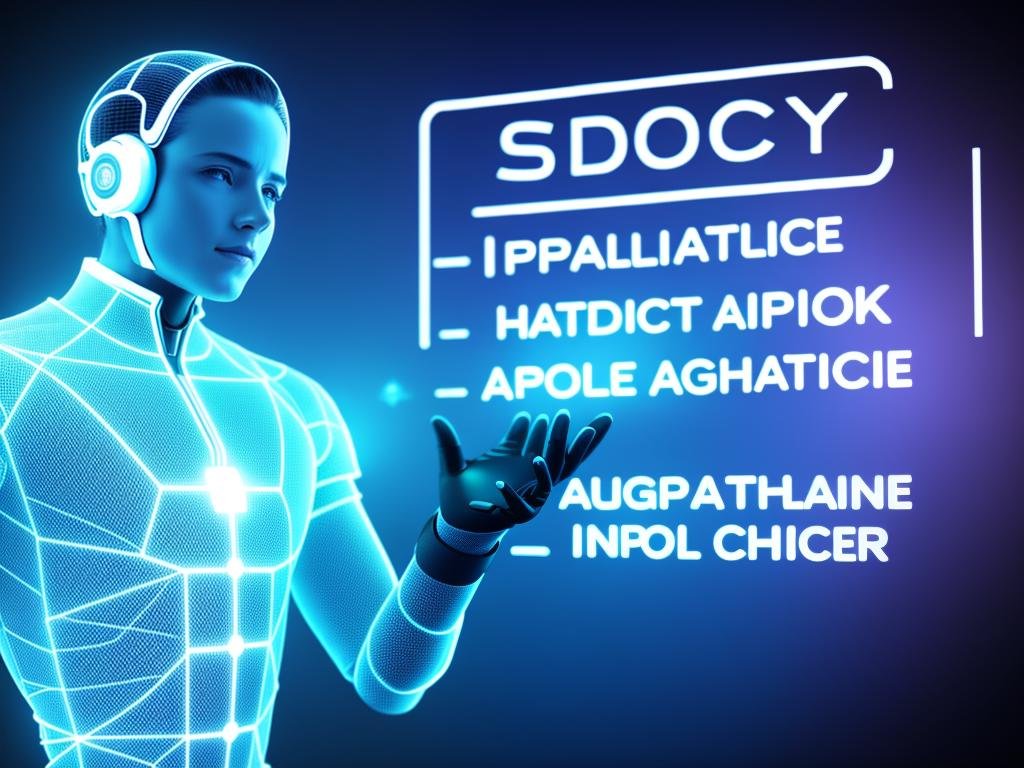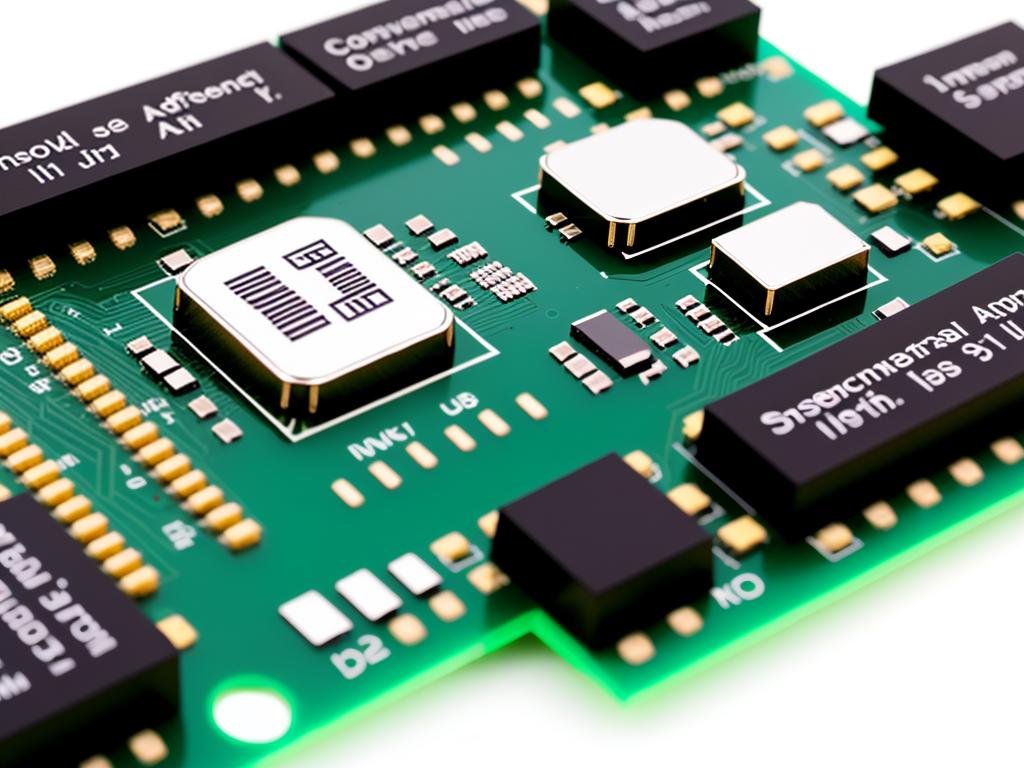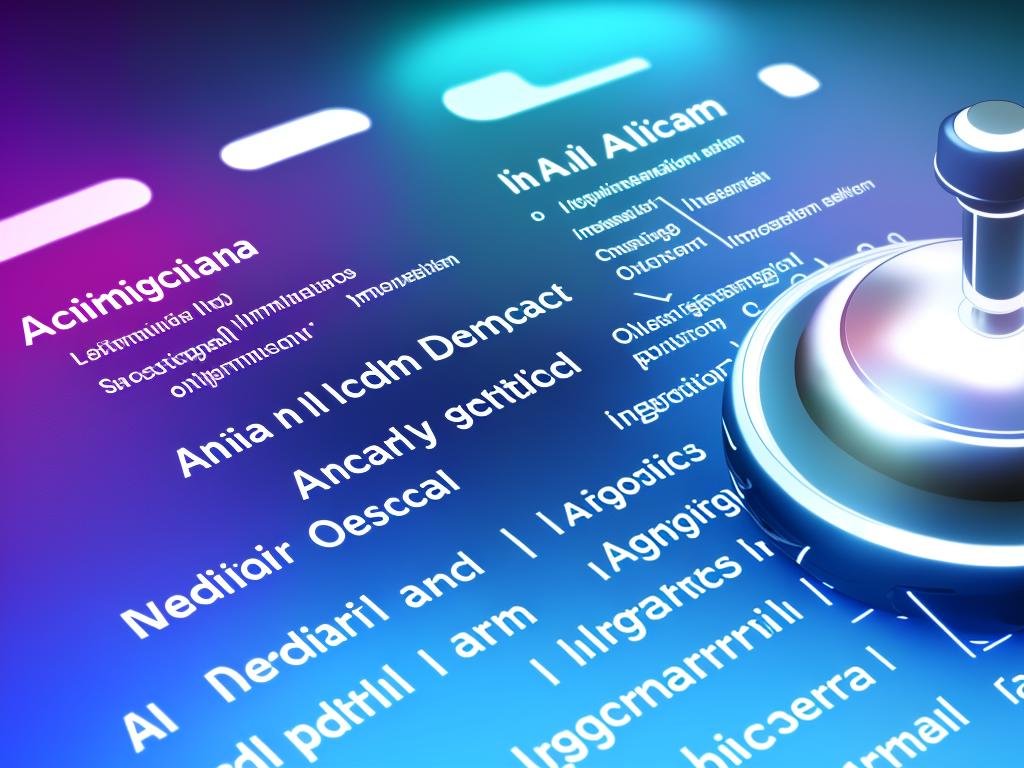Artificial intelligence, once a concept more suited to the realm of science fiction, is increasingly becoming an integral component of diverse industries across the globe. Among these, healthcare stands out as a domain where the impact of AI could be transformative. Starting from its early implications, AI has gradually become a catalyst in revolutionizing various healthcare-related initiatives. Data management, scheduling, and other administrative tasks which were traditionally done manually are now being efficiently handled by AI systems, leading to a significant enhancement in the operational effectiveness and accuracy of healthcare institutions. Furthermore, AI’s role in patient care, encompassing diagnosis, treatment protocols, and prescription assistance, is greatly amplifying its potential in the sector. Nevertheless, as promising as these developments are, they mark just the beginning of a journey towards a future where AI and healthcare are inseparably linked.
The Emergence of AI in Healthcare
Artificial Intelligence (AI) has steadily infiltrated various sectors, but perhaps none as significantly as the healthcare industry. This technological revolution took a while to unfurl within this industry chiefly due to apprehensions about patient safety and privacy. However, the potential for prospering healthcare practices through AI’s efficiency, precision, and enhancement of patient care was too viable to ignore.
When AI first made an appearance in healthcare, it was primarily applied in the field of medical imaging and diagnostics. Machine Learning (ML), a subset of AI, was adopted to interpret imaging data. This entailed processing and analyzing vast sets of medical images such as X-rays, MRIs, and CT scans in an efficient and accurate manner. It enabled quicker diagnosis, hence early intervention in potentially fatal medical conditions like cancers.
AI was also applied in monitoring patients to predict and prevent adverse events, especially in critical care. The AI systems use algorithms to analyze the data fed into them like vital signs and laboratory results. They can interpret these patterns and predict potential health crises, enabling the healthcare provider to intervene proactively.
As AI became more sophisticated, its applications in healthcare have transformed in equal measure from merely diagnostic to prognostic, predictive, and eventually, even prescriptive.
One clear example is the use of AI in drug discovery and pharmacology, a time-consuming and resource-intensive process. AI can analyze a multitude of combinations of drugs and disease markers within a fraction of the time when compared to traditional methods. This has accelerated the pace of drug discovery and made it more cost-effective.
AI-enabled robots have notably disrupted the surgical space, especially in minimally invasive procedures. They provide precision and stability, reducing surgery times, and diminishing patient recovery periods.
In recent years, AI made profound strides in patient care beyond hospitals and healthcare facilities. AI-powered devices and applications are now being used to manage chronic illnesses such as diabetes and pulmonary diseases. Patients can monitor their health status and depending on the results given by the AI apps, adjust their lifestyles or medication, as guided by their healthcare provider.
Telemedicine and virtual health services have reformed patient care, specifically in this time of the COVID-19 pandemic. AI chatbots and virtual health assistants are being employed on the front lines, providing immediate access to healthcare evaluation to anyone with an internet connection.
AI’s emergence has profoundly transformed the healthcare industry, offering advancements from early diagnostics to patient care and outcome predictions. However, alongside this rapid expansion, we encounter a variety of legal, ethical, and cybersecurity concerns, covering areas such as data privacy and potential bias in AI-based decision-making processes. The effective potential of AI to revolutionize healthcare is continually evolving through ongoing research and regulatory measures. As the future unfolds, we can expect more obstructions to be overcome, pushing AI-enabled healthcare to achieve new unprecedented milestones.

AI Technology and Its Applications in Health Administration
The Role of AI Technology in Healthcare Administration
AI technology is carving a significant role in healthcare administration, thereby overhauling conventional operating protocols. The possible applications of AI in this arena are broad and varied and include tasks like managing electronic health records (EHRs), bolstering predictive analytics, and optimizing scheduling and staffing procedures. Furthermore, AI enhances patient engagement, driving improvement in the overall healthcare experience.
The Role of AI in Data Management
AI plays a significant role in managing colossal healthcare data volumes. It allows healthcare administrators to use EHRs more effectively by streamlining record-keeping practices and reducing administrative burden. By applying AI algorithms to these digital records, health professionals can interpret patterns, trends, and predictions that can aid in diagnosing diseases and determining the best treatment plans.
Machine learning, a subset of AI, can handle unstructured data and analyze medical images, laboratory results, clinical notes, and more. These data-driven insights not only help clinicians deliver personalized patient care, but also assist administrators in making informed decisions about resource allocation, quality improvement initiatives, and research directions.
AI in Scheduling and Other Admin Works
Scheduling is another area where AI is making a substantial impact within healthcare institutions. Automated appointment systems powered by AI can drastically reduce wait times, increase patient satisfaction, and optimize healthcare providers’ schedules. For example, AI-driven scheduling platforms can optimize appointments based on provider availability, patient preferences, and urgency of the medical situation.
In more advanced settings, AI can predict future patient volume based on historical data and trends. This predictive scheduling capability aids healthcare organizations in adequate staffing and resource planning, minimizing the chances of overstocking or understaffing.
AI’s role in administrative work also extends to revenue cycle management, supply chain optimization, patient experience management, and policy compliance monitoring. AI-driven systems can analyze claims data to prevent denials, streamline procurement processes, personalize patient communication, and ensure regulation adherence—thereby improving efficiency and accuracy across all administrative processes.
Enhancing Efficiency and Accuracy
In an industry where time is of the essence, AI can significantly enhance efficiency. By automating administrative tasks, health institutions can reduce human errors, eliminate redundant processes, and free up a significant amount of time for healthcare professionals to focus on patient care.
For instance, AI can manage high volumes of paperwork, transcribe medical notes, automate billing and insurance claims, and track patient correspondence. With machine learning algorithms, these processes can continually improve over time, leading to increased administrative efficiency.
Accuracy is another critical aspect where AI brings notable improvements. By analyzing extensive data sets, AI can help eliminate data discrepancies, maintain patient data integrity, and prevent fraudulent activities.
In the final analysis, artificial intelligence (AI) is revolutionizing health administration. Its utilization in tasks such as data management and scheduling not only enhance efficiency, but also contribute significantly to improved patient care. This makes AI an indispensable tool in the contemporary healthcare landscape.

Patient Care and AI
AI and Patient Care: Exploring the Possibilities
The influence of AI is swiftly expanding across numerous industries and healthcare is not resistant to this expanding wave. AI, a powerful blend of machine learning, deep learning, and neural networks, holds the promise of completely reshaping the field of patient care. The introduction of AI into patient care stands to cause a seismic shift in areas like diagnosis, design of treatment plans, help with prescriptions, and the practice of telemedicine.
Diagnosis and AI
Traditionally, the diagnostic process involves a doctor analyzing a patient’s symptoms and medical history. With AI, however, this process can be expedited and made even more accurate. For instance, AI algorithms are capable of analyzing radiological images and predicting diseases such as cancer, cardiovascular diseases, and neurological disorders at an early stage. These algorithms can be trained to process and interpret an extensive amount of data, including imaging data, patient history, and genomic profiles to facilitate diagnosis much faster and more accurately than humanly possible.
Treatment Protocols and AI
The proper formulation of treatment strategies typically takes into account a patient’s specific conditions, the diagnosis, and the likely course of the disease. AI has been showing its mettle in creating and adhering to effective and individualized treatment protocols. Algorithms designed by AI can evaluate a patient’s condition, consider their medical history, understand the nature of the disease, and even predict the patient’s response to different treatment options. These AI-powered treatment protocols can significantly improve the outcomes and may also result in reduced treatment time and healthcare costs.
Prescription Assistance and AI
Prescription assistance is one of the key areas where AI can prove to be a game-changer in patient care. AI ensures that patients are prescribed the right medications at the right dosages. Advanced machine learning algorithms can process vast amounts of data from disparate sources like electronic health records, drug databases, and scientific literature to suggest suitable medications and dosages for individual patients. This capability can potentially reduce medication errors, which are a significant concern in healthcare.
Telemedicine and AI
The rise of telemedicine, expedited by the COVID-19 pandemic, opens a new avenue for AI in patient care. Artificial intelligence can enhance remote patient monitoring, follow-up care, providing medical advice, and more through telemedicine platforms. Intelligent chatbots powered by natural language processing can interact with patients, understand their symptoms, and provide basic assistance 24/7. This hugely helps in increasing general accessibility to healthcare services.
Navigating the Road to AI in Healthcare: Anticipating Challenges and Obstacles
In the journey towards embracing AI in healthcare, certain challenges are to be expected. Thorough safety, efficacy, and reliability testing are critical prerequisites for incorporating AI solutions in patient care. Furthermore, data security and privacy concerns necessitate thoughtful consideration. Additionally, the facilitation of AI technology may require healthcare institutions to invest in improved infrastructure and process redesign.
Equally important are the issues of ethics and bias in AI. Inequalities in patient care may arise due to bias in AI algorithms, and ethical dilemmas can emerge concerning decision-making autonomy, accountability, and the dynamics of the patient-doctor relationship.
Although overcoming these hurdles appears daunting, the benefits AI promises for patient care are immense. With a commitment to engaging these challenges head-on, the healthcare industry can harness the power of AI to provide personalized and efficient care.

Future of AI in Healthcare
Exploring the Future: AI’s Potential Impact on Healthcare
As AI continues to advance, it presents promising potential for the future of healthcare. Potential applications span across cancer detection, patient monitoring, rehabilitation, gene editing, and drug discovery, leading to the possibility of increased diagnostic precision, broader and more tailor-made treatment options, resulting in enhanced patient outcomes.
Given AI’s current growth trajectory, we can expect a move towards more personalized healthcare. Technologies such as wearables could provide uninterrupted real-time health tracking, enabling early detection of various health conditions. This could significantly improve certain areas, like behavioral health that currently face issues due to inaccurate patient self-reporting.
AI and Precision Medicine
AI is paving the way for an era of precision medicine. Broadly speaking, precision medicine refers to the customizing of healthcare, with decisions and treatments being tailored to the individual patient. With the help of AI, healthcare providers might soon be able to analyze an individual’s genetic makeup and lifestyle to provide preventive measures and treatments that are specifically tailored to that individual’s profile.
Artificial intelligence could also enhance preventive medicine by predicting patient-specific disease risks. This could allow clinicians to focus efforts on patients who are at a higher risk of developing a condition, ultimately leading to more timely and effective treatments.
Expert Opinions on AI in Healthcare
Experts hold a generally optimistic outlook on the future of AI in healthcare. However, they also caution that significant challenges remain to be addressed, particularly in the areas of data privacy and ethical decision-making.
Accuracy in AI-generated algorithms also remains a significant concern, as it could cause severe harm to a patient. Hence, even though AI shows great promise in improving healthcare, it is imperative to carefully consider these challenges and address them comprehensively to ensure this technology is applied safely and beneficially.
AI’s trajectory in healthcare also depends heavily on healthcare personnel accepting and adapting to these changes. Doctors, nurses, and technicians will need to be trained on how to use AI responsibly and effectively in their patient care. This could mean substantial shifts in professional preparation and continuing education.
A New Horizon: AI in Healthcare
Innovation in the form of AI is poised to revolutionize healthcare, a sector that has long been resistant to technological change. AI could potentially streamline administrative tasks, offer telehealth solutions, provide better risk assessment, and improve clinical decision making, among many other benefits.
As AI continues to evolve and integrate into the healthcare sector, experts anticipate a future where healthcare is more personalized, efficient, and effective. Ultimately, the goal is to enhance patient outcomes and improve global health. With careful attention to the significant ethical, legal, and practical challenges that accompany these technologies, the future of AI in healthcare could well be very bright.

As we fixate our eyes on the horizon, the future of AI in healthcare promises a paradigm shift that could redefine the way we perceive medical care. The constant evolution and advancements of AI technology hold the potential to address many of the challenges that currently confound the healthcare industry. Notwithstanding, the journey towards this future is accompanied by its own share of obstacles and uncertainties. However, the enduring opinion of experts indicates that the intersection of AI and healthcare is more likely to significantly enhance the quality of care rather than diminish it. Thus, as we continue to navigate the expansive sea of this synergy, the prospect of reaching a destination where healthcare is more personalized, efficient, and accessible is becoming increasingly palpable.




